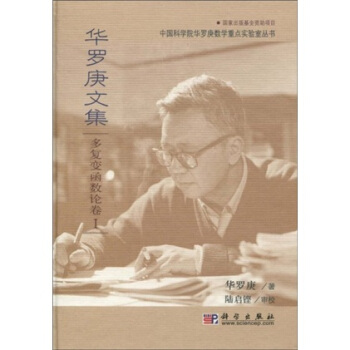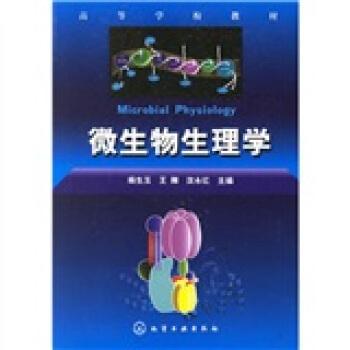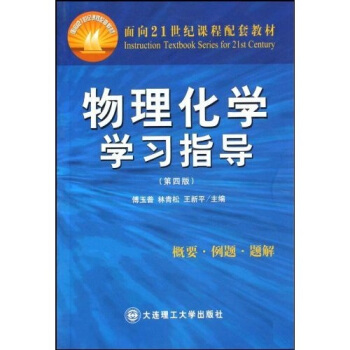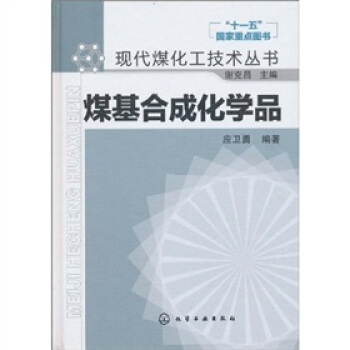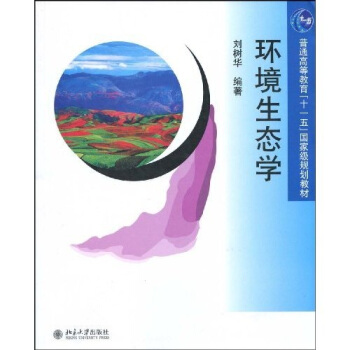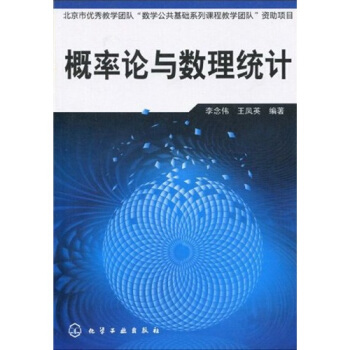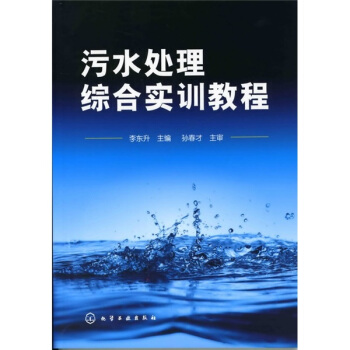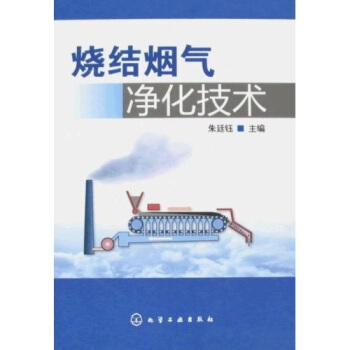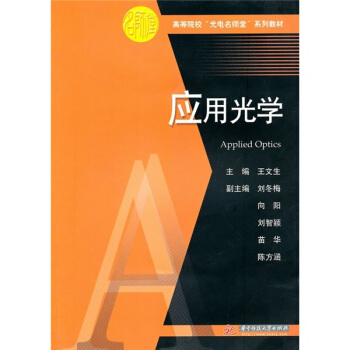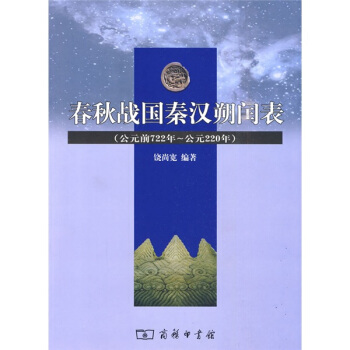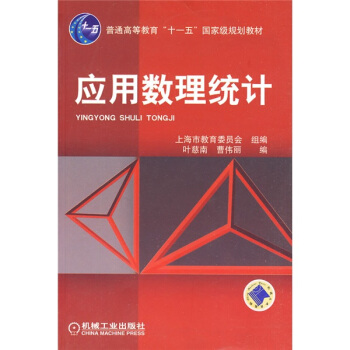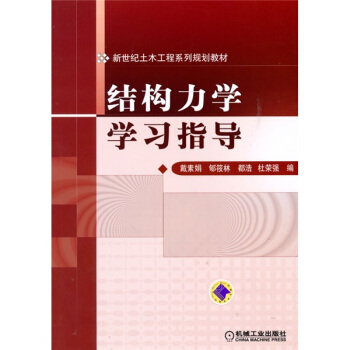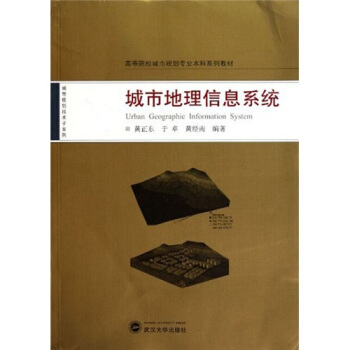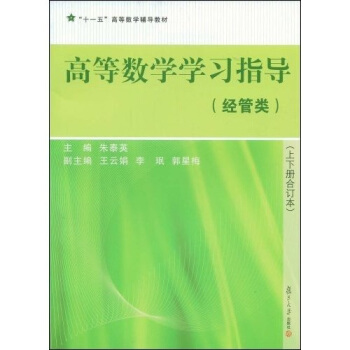![非平衡態量子場論(英文版) [Quantum Field Theory Of Non-equilibrium States]](https://pic.tinynews.org/10104526/02fba0b5-3ada-4fc5-8409-e38c4dcdc447.jpg)
非平衡態量子場論(英文版) [Quantum Field Theory Of Non-equilibrium States] pdf epub mobi txt 電子書 下載 2026
- Quantum Field Theory
- Non-equilibrium
- Statistical Physics
- Condensed Matter Physics
- Many-Body Systems
- Quantum Kinetics
- Open Quantum Systems
- Dissipation
- Thermal Field Theory
- Nonequilibrium Statistical Mechanics

具體描述
內容簡介
The purpose of this book is to provide an introduction to the applications of quantum field theoretic methods to systems out of equilibrium. The reason for adding a book on the subject of quantum field theory is two-fold: the presentation is, to my knowledge, the first to extensively present and apply to non-equilibrium phenomena the real-time approach originally developed by Schwinger, and subsequently applied by Keldysh and others to derive transport equations. Secondly, the aim is to show the universality of the method by applying it to a broad range of phenomena. The book should thus not just be of interest to condensed matter physicists, but to physicists in general as the method is of general interest with applications ranging the whole scale from high-energy to soft condensed matter physics. The universality of the method, as testified by the range of topics covered, reveals that the language of quantum fields is the universal description of fluctuations, be they of quantum nature, thermal or classical stochastic. The book is thus intended as a contribution to unifying the languages used in separate fields of physics, providing a universal tool for describing non-equilibrium states.內頁插圖
目錄
Preface1 Quantum fields
1.1 Quantum mechanics
1.2 N-particle system
1.2.1 Identical particles
1.2.2 Kinematics of fermions
1.2.3 Kinematics of bosons
1.2.4 Dynamics and probability current and density
1.3 Fermi field
1.4 Bose field
1.4.1 Phonons
1.4.2 Quantizing a classical field theory
1.5 Occupation number representation
1.6 Summary
2 Operators on the multi-particle state space
2.1 Physical observables
2.2 Probability density and number operators
2.3 Probability current density operator
2.4 Interactions
2.4.1 Two-particle interaction
2.4.2 Fermio boson interaction
2.4.3 Electron-phonon interaction
2.5 The statistical operator
2.6 Summary
3 Quantum dynamics and Greens functions
3.1 Quantum dynamics
3.1.1 The SchrSdinger picture
3.1.2 The Heisenberg picture
3.2 Second quantization
3.3 Greens functions
3.3.1 Physical properties and Greens functions
3.3.2 Stable of one-particle Greens functions
3.4 Equilibrium Greens functions
3.5 Summary
4 Non-equilibrium theory
4.1 The non-equilibrium problem
4.2 Ground state formalism
4.3 Closed time path formalism
4.3.1 Closed time path Greens function
4.3.2 Non-equilibrium perturbation theory
4.3.3 Wicks theorem
4.4 Non-equilibrium diagrammatics
4.4.1 Particles coupled to a classical field
4.4.2 Particles coupled to a stochastic field
4.4.3 Interacting fermions and bosons
4.5 The self-energy
4.5.1 Non-equilibrium Dyson equations
4.5.2 Skeleton diagrams
4.6 Summary
5 Real-time formalism
5.1 Real-time matrix representation
5.2 Real-time diagrammatics
5.2.1 Feynman rules for a scalar potential
5.2.2 Feynman rules for interacting bosons and fermions
5.3 Triagonal and symmetric representations
5.3.1 Fermion-boson coupling
5.3.2 Two-particle interaction
5.4 The real rules: the RAK-rules
5.5 Non-equilibrium Dyscn equations
5.6 Equilibrium Dyscn equation
5.7 Real-time versus imaginary-time formalism
5.7.1 Imaginary-time formalism
5.7.2 Imaginary-time Greens functions
5.7.3 Analytical continuation procedure
5.7.4 Kadanoff-Baym equations
5.8 Summary
6 Linear response theory
6.1 Linear response
6.1.1 Density re~,ponse
6.1.2 Current response
6.1.3 Ccnductivity tensor
6.1.4 Ccnductance
6.2 Linear response cf Greens functions
6.3 Properties cf respone hmctions
6.4 Stability cf the thermal equilibrium ,tate
6.5 Fluctuation-dissipation theorem
6.6 Time-reversal symmetry
6.7 Scattering and correlation functions
6.8 Summary
7 Quantum kinetic equations
7.1 Left-right subtracted Dyson equation
7.2 Wigner or mixed coordinates
7.3 Gradient approximation
7.3.1 Spectral weight function
7.3.2 Quasi-particle approximation
7.4 Impurity scattering
7.4.1 Boltzmannian motion in a random potential
7.4.2 Brownian motion
7.5 Quasi-classical Greens function technique
7.5.1 Electron-phonon interaction
7.5.2 Renormalization of the a.c. conductivity
7.5.3 Excitation representation
7.5.4 Particle conservation
7.5.5 Impurity scattering
7.6 Beyond the quasi-classical approximation
7.6.1 Thermo-electrics and magneto-transport
7.7 Summary
8 Non-equilibrium superconductivity
8.1 BCS-theory
8.1.1 Nambu or particle-hole space
8.1.2 Equations of motion in Nambu Keldysh space
8.1.3 Greens functions and gauge transformations
8.2 Quasi-classical Greens function theory
8.2.1 Normalization condition
8.2.2 Kinetic equation
8.2.3 Spectral densities
8.3 Trajectory Greens functions
8.4 Kinetics in a dirty superconductor
8.4.1 Kinetic equation
8.4.2 Ginzburg-Landau regime
8.5 Charge imbalance
8.6 Summary
9 Diagrammatics and generating functionals
9.1 Diagrammatics
9.1.1 Propagators and vertices
9.1.2 Amplitudes and superposition
9.1.3 Fundamental dynamic relation
9.1.4 Low order diagrams
9.2 Generating functional
9.2.1 Fhnctional differentiation
9.2.2 From diagrammatics to differential equations
9.3 Connection to operator formalism
9.4 Fermions and Grassmann variables
9.5 Generator of connected amplitudes
9.5.1 Source derivative proof
9.5.2 Combinatorial proof
9.5.3 Functional equation for the generator
9.6 One-particle irreducible vertices
9.6.1 Symmetry broken states
9.6.2 Greens functions and one-particle irreducible vertices
9.7 Diagrammatics and action
9.8 Effective action and skeleton diagrams
9.9 Summary
10 Effective action
10.1 Functional integration
10.1.1 Functional Fourier transformation
10.1.2 Gaussian integrals
10.1.3 Fermionic path integrals
10.2 Generators as functional integrals
10.2.1 Euclid versus Minkowski
10.2.2 Wicks theorem and functionals
10.3 Generators and 1PI vacuum diagrams
10.4 1PI loop expansion of the effective action
10.5 Two-particle irreducible effective action
10.5.1 The 2PI loop expansion of the effective action
10.6 Effective action approach to Bose gases
10.6.1 Dilute Bose gases
10.6.2 Effective action formalism for bosons
10.6.3 Homogeneous Bose gas
10.6.4 Renormalization of the interaction
10.6.5 Inhomogeneous Bose gas
10.6.6 Loop expansion for a trapped Bose gas
10.7 Summary
11 Disordered conductors
11.1 Localization
11.1.1 Scaling theory of localization
11.1.2 Coherent backscattering
11.2 Weak localization
11.2.1 Quantum correction to conductivity
11.2.2 Cooperon equation
11.2.3 Quantum interference and the Cooperon
11.2.4 Quantum interference in a magnetic field
……
12 Classical Statistical Dynamics
Appendices
前言/序言
The purpose of this book is to provide an introduction to the applications of quantum field theoretic methods to systems out of equilibrium. The reason for adding a book on the subject of quantum field theory is two-fold: the presentation is, to my knowledge, the first to extensively present and apply to non-equilibrium phenomena the real-time approach originally developed by Schwinger, and subsequently applied by Keldysh and others to derive transport equations. Secondly, the aim is to show the universality of the method by applying it to a broad range of phenomena. The book should thus not just be of interest to condensed matter physicists, but to physicists in general as the method is of general interest with applications ranging the whole scale from high-energy to soft condensed matter physics. The universality of the method, as testified by the range of topics covered, reveals that the language of quantum fields is the universal description of fluctuations, be they of quantum nature, thermal or classical stochastic. The book is thus intended as a contribution to unifying the languages used in separate fields of physics, providing a universal tool for describing non-equilibrium states.Chapter 1 introduces the basic notions of quantum field theory, the bose and fermi quantum fields operating on the multi-particle state spaces. In Chapter 2, op- erators on the multi-particle space representing physical quantities of a many-body system are constructed. The detailed exposition in these two chapters is intended to ensure the book is self-contained. In Chapter 3, the quantum dynamics of a many-body system is described in terms of its quantum fields and their correla- tion functions, the Greens functions. In Chapter 4, the key formal tool to describe non-equilibrium states is introduced: Schwingers closed time path formulation of non-equilibrium quantum field theory, quantum statistical mechanics. Perturbation theory for non-equilibrium states is constructed starting from the canonical operator formalism presented in the previous chapters. In Chapter 5 we develop the real-time formalism necessary to deal with non-equilibrium states; first in terms of matrices and eventually in terms of two different types of Greens functions. The diagram representation of non-equilibrium perturbation theory is constructed in a way that the different aspects of spectral and quantum kinetic properties appear in a physi- cally transparent and important fashion for non-equilibrium states. The equivalence of the real-time and imaginary-time formalisms are discussed in detail. In Chap- ter 6 we consider the coexistence regime between equilibrium and non-equilibrium states, the linear response regime. In Chapter 7 we develop and apply the quantum kinetic equation approach to the normal state.
用戶評價
評分坦白講,我購買這本書時,主要是齣於對其“非平衡態”這一主題的好奇。我一直在關注粒子物理和凝聚態物理的交叉領域,而“非平衡態量子場論”聽起來就是一個極具挑戰性和前沿性的方嚮。我預想中,書中會大量涉及復雜的數學工具,例如路徑積分、費曼圖以及各種重整化群方法,但作者能夠如何將這些工具巧妙地應用於描述那些遠離熱力學平衡的量子係統,是讓我最為期待的部分。尤其是在處理那些具有強關聯、強非綫性的係統時,傳統的平衡態理論往往顯得力不從心,而非平衡態量子場論的齣現,無疑為我們提供瞭一個更強大的理論框架。我希望書中能夠清晰地闡釋,為何在非平衡態下,某些在平衡態下被忽略的效應會變得至關重要。例如,時間演化算符的計算,以及如何有效地處理開放量子係統的退相乾過程,這些都是非平衡態理論的核心內容。我還在猜測,書中是否會探討諸如量子信息處理、高能物理碰撞中的熱化過程,甚至是黑洞信息悖論等與非平衡態相關的熱門議題。盡管我可能無法完全消化書中的每一個細節,但我相信,即便隻是理解其核心思想和方法論,也能極大地拓寬我對量子場論應用的認知邊界。
評分這本書的封麵設計著實吸引人,那種深邃的藍色與細緻的金色綫條交織,仿佛預示著書中即將展開的宇宙奧秘。我毫不誇張地說,在拿到這本書之前,我對“非平衡態”這個詞的理解僅限於日常生活中電源的插拔或者水的流動,腦海中並沒有將其與量子場論這樣高深莫測的領域聯係起來。然而,翻開第一頁,盡管我還沒有深入到具體的公式推導,但作者開篇就用一種引人入勝的方式,將宏觀世界的直觀現象與微觀量子世界的復雜性巧妙地銜接起來。我能夠感覺到,這本書並非是那種枯燥乏味的教科書,它似乎在邀請讀者一同踏上一場智力探險,去探索那些我們司空見慣卻又充滿未知的物理現象背後,潛藏著的量子規律。我特彆期待書中對“相乾性”和“量子漲落”在非平衡態下的討論,因為在我粗淺的理解中,這些概念往往與平衡態下的體係描述息息相關,而探索它們在動態演化中的行為,想必會帶來全新的視角和深刻的洞察。我甚至開始設想,書中的內容會不會涉及到一些前沿的實驗現象,比如超導、超流體的動態行為,或者一些宇宙學模型中關於早期宇宙的演化過程。總之,這本書的初步印象,就是它能夠以一種既嚴謹又富有啓發性的方式,將復雜的量子場論概念,應用於我們難以直接觀察但又至關重要的非平衡態物理世界,這本身就是一種巨大的吸引力。
評分這本書的書名《非平衡態量子場論》給我一種耳目一新的感覺。我之前接觸過的量子場論書籍,大多是圍繞著相對論性量子場論、標準模型以及某些特定的量子現象展開,而“非平衡態”這個概念在其中並不突齣。我瞭解到,很多重要的物理過程,無論是宇宙的形成、生命體的演化,還是凝聚態物質中的動態相變,都發生在遠離平衡態的條件下。而傳統的量子場論在描述這些過程時,往往會遇到理論上的挑戰。因此,我對於本書如何將量子場論的強大工具應用於分析這些非平衡態過程感到非常興奮。我猜測書中可能會涉及如何構建描述非平衡態量子係統的有效理論,以及如何利用量子場論的方法來計算一些重要的物理量,例如輸運係數、激發譜以及相乾性的衰減等。我非常期待書中能夠提供一些具體的案例分析,比如在凝聚態物理中,如何用非平衡態量子場論來理解強激光照射下的材料動力學,或者在天體物理中,如何描述宇宙早期量子場的演化。我相信,這本書將為我提供一個全新的視角來理解我們所處的這個動態演化的宇宙。
評分我之所以選擇這本《非平衡態量子場論》,很大程度上是被其“非平衡態”這個關鍵詞所吸引。在我學習量子場論的傳統課程時,重點往往聚焦於漸近自由、對稱性破缺等平衡態下的現象,而對於遠離平衡態的復雜演化過程,則涉及較少。我一直在思考,在宇宙的早期,或者是在一些極端物理條件下,比如黑洞附近,量子場是如何處於非平衡狀態並演化齣我們今天觀測到的現象的。因此,這本副標題為“非平衡態量子場論”的書,恰恰滿足瞭我對這些問題的探索欲。我期待書中能夠提供一套係統性的方法論,來分析和描述量子場在非平衡態下的動態行為。這可能涉及到一些我尚不熟悉的數學工具或概念,例如Keldysh方法,或者是一些用於處理非平衡態格林函數的技術。我希望作者能夠循序漸進地引導讀者,從一些相對簡單的模型入手,逐步深入到更復雜、更現實的物理場景。我也對書中是否會討論非平衡態下的量子相變,或者如何在實驗上探測和驗證非平衡態量子場論的預測感到非常好奇。畢竟,理論的生命力在於其能否被實驗所檢驗。
評分拿起這本書,首先映入眼簾的是“非平衡態”這個詞,它立刻勾起瞭我對物理世界中那些瞬息萬變的現象的聯想。我一直對那些在動態演化中展現齣奇妙量子行為的係統非常著迷,而傳統的量子場論,在描述平衡態時顯得得心應手,但在麵對充滿活力、不斷變化的非平衡態時,似乎總有種力不從心的感覺。因此,這本書的齣現,對我來說就像是一束光,照亮瞭這片曾經相對模糊的領域。我迫不及待地想知道,書中將如何用嚴謹的量子場論語言來刻畫那些動態的量子過程。我猜測,書中可能會涉及一些我之前未曾深入瞭解過的數學框架,比如如何處理時間依賴性的算符、如何引入無壓元的算符以及如何計算那些具有復雜時間演化的格林函數。我也對書中是否會探討一些前沿的物理問題,例如量子相變在非平衡態下的錶現,或者如何利用非平衡態量子場論來理解某些新興的凝聚態物理現象,如拓撲材料在動態過程中的性質。總而言之,這本書承諾瞭我將獲得一套全新的工具和視角,去理解那些在動態中湧現的量子奇跡。
非常好的一本寫非平衡態格林函數的書。作者在 Review of Modern Physics 上有一篇這方麵的 review 文章。這本書比那個文章更細緻也更易讀。強烈推薦做 quantum transport 方麵研究的人都讀一讀。
評分量子場論是量子力學基本原理在具有無窮多自由度係統中的具體應用。此書介紹瞭非平衡態係統中的量子場論方法,以及非平衡態多體係統統計力學性質及其實時格林函數研究方法。簡明介紹完量子場論和格林函數後,作者講解瞭Schwinger閉時路徑方法,詳細討論瞭實時格林函數和費曼圖技術。作者利用準經典格林函數推導瞭量子運動學方程,並係統地研究瞭重整化效應,非平衡態超導,無序導體中的量子效應等議題。本書給齣瞭兩種研究非平衡態多體係統的方法:數學正則化方法和費曼圖方法。費曼圖方法的優點是簡單直觀,易於理解。
評分一本好書 需要慢慢琢磨 就是略舊
評分非常好的一本寫非平衡態格林函數的書。作者在 Review of Modern Physics 上有一篇這方麵的 review 文章。這本書比那個文章更細緻也更易讀。強烈推薦做 quantum transport 方麵研究的人都讀一讀。
評分好書啊好書,好書啊好書
評分量子輸運方麵的好書!
評分多讀書,可以讓你多增加一些課外知識。培根先生說過:“知識就是力量。”不錯,多讀書,增長瞭課外知識,可以讓你感到渾身充滿瞭一股力量。這種力量可以激勵著你不斷地前進,不斷地成長。讀書可以調節身體的血管流動,使你身心健康。[QY]所以用讀書來為自己放鬆心情也是一種十分明智的。 讀書能陶冶人的情操,給人知識和智慧。在書的海洋裏遨遊也是一種無限快樂的事情。讀書養性,讀書可以陶冶自己的性情,使自己溫文爾雅,具有書捲氣;從書中,你往往可以發現自己身上的不足之處,使你不斷地改正錯誤,擺正自己前進的方嚮。所以,書也是我們的良師益友。 多讀書,可以讓你變聰明,變得有智慧去戰勝對手。書讓你變得更聰明,你就可以勇敢地麵對睏難。讓你用自己的方法來解決這個問題。這樣,你又嚮你自己的人生道路上邁齣瞭一步。 多讀書,也能使你的心情便得快樂。讀書也是一種休閑,一種娛樂的方式。 其實讀書有很多好處,就等有心人去慢慢發現. 最大的好處是可以讓你有屬於自己的本領靠自己生存。
評分給力的一本好書,字跡什麼的都很不錯,挺好的
評分非常好的一本寫非平衡態格林函數的書。作者在 Review of Modern Physics 上有一篇這方麵的 review 文章。這本書比那個文章更細緻也更易讀。強烈推薦做 quantum transport 方麵研究的人都讀一讀。
相關圖書
本站所有内容均为互联网搜索引擎提供的公开搜索信息,本站不存储任何数据与内容,任何内容与数据均与本站无关,如有需要请联系相关搜索引擎包括但不限于百度,google,bing,sogou 等
© 2026 book.tinynews.org All Rights Reserved. 静思书屋 版权所有

![牛津英語百科分類詞典係列:牛津地球科學詞典 [Oxford Dictionary of Earth Sciences] pdf epub mobi 電子書 下載](https://pic.tinynews.org/10114802/e9cc17e1-f223-46ae-bb7b-80d5eaafe553.jpg)
![染色體基因與疾病 [Chromosome, gene and disease] pdf epub mobi 電子書 下載](https://pic.tinynews.org/10122736/10add117-c020-46c2-a009-1ec15744313c.jpg)
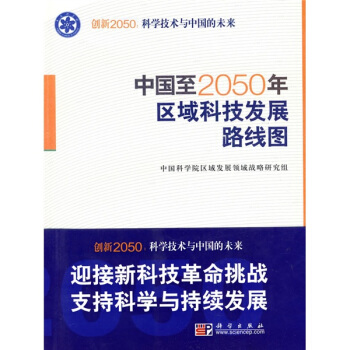
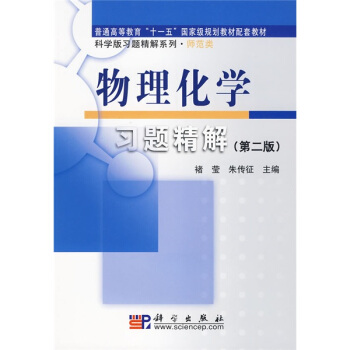
![細胞周期調控原理 [The Cell Cycle:Principles of Control] pdf epub mobi 電子書 下載](https://pic.tinynews.org/10123398/bd0d4a1a-211a-4901-9a59-e903bf8e2445.jpg)
